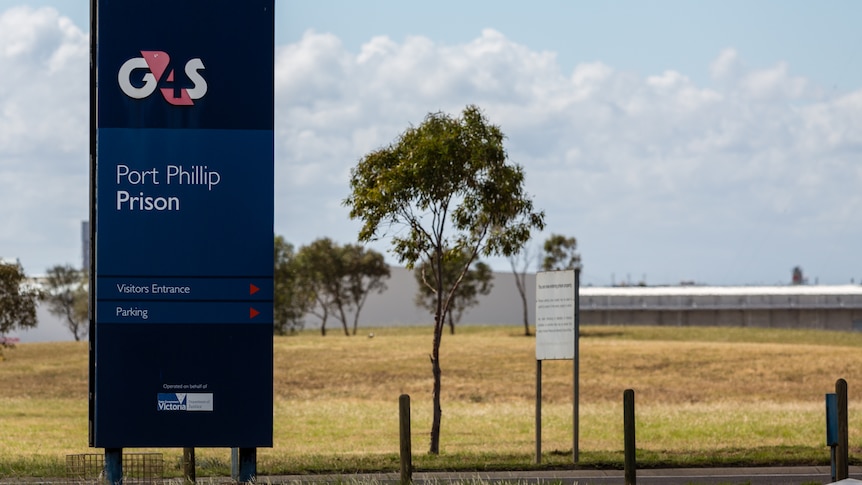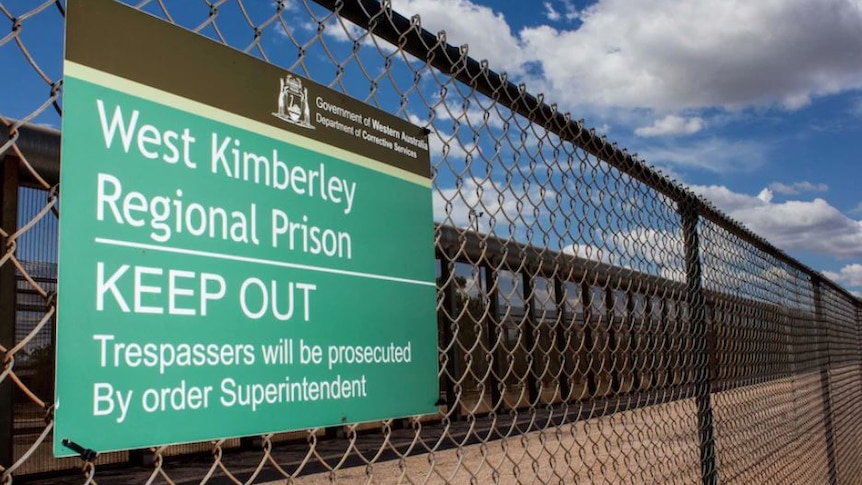An Aboriginal man has died in a Melbourne prison just hours after returning from hospital.
Key points:
- The man in his early 30s died in the medical unit at the high-security Port Phillip Prison
- The coroner and Corrections Victoria will investigate the incident
- The First Peoples’ Assembly of Victoria is calling for urgent systemic reform
The ABC understands the 32-year-old man was taken to St Vincent’s Hospital on Wednesday morning for treatment.
He was then brought back to the maximum-security Port Phillip prison, where he died in the medical unit on Wednesday night.
A spokesperson from the Department of Justice and Community confirmed the man died on Wednesday.
“It is with great sorrow that Corrections Victoria acknowledges the passing of a prisoner at Port Phillip Prison,” the spokesperson said.
“As with all deaths in custody, the matter has been referred to the coroner, who will formally determine the cause of death.”
Premier Daniel Andrews said both the coroner and Corrections Victoria would conduct a full review into death.
A statement was posted to the Corrections Victoria website late on Friday afternoon, saying: “We recognize that all deaths in custody have impacts on family members, friends, victims and the broader Aboriginal community, and we’re working to ensure they are provided with the support they need.”
Victoria’s corrections system was heavily criticized during a recent inquest into the death of Aboriginal woman Veronica Nelson, who died alone in her cell despite repeatedly calling out for help.
A St Vincent’s spokesperson offered the hospital’s condolences and said it would comply with the coronial inquest.
Push for uniform services across Australia
Federal Attorney-General Mark Dreyfus told ABC Radio Melbourne he wanted all states to adopt uniform custody notification services.
He said national implementation of the support services would enable Aboriginal people in custody to speak to lawyers, family members and support services.
“We’ve made a commitment in the election to assist families with coronial inquiries with the hope that if these deaths in custody are examined, we will learn more about how they can be prevented,” he said.
In 1991, Australia’s Royal Commission into Aboriginal Deaths in Custody warned the arrest of Aboriginal people should be a last resort and that prison staff should be trained to recognize the signs of deteriorating health.
There have been more than 500 deaths in custody since the commission.
Co-chair of the First Peoples’ Assembly of Victoria Marcus Stewart said the figure showed that changes were long overdue.
“[It’s] 500 too many. I have no confidence that the system is working,” he said.
“I think the system is rotted and corroded to its core and we need systematic reform, structural reform.”
He said mechanisms such as the Yoorrook Justice Commission, a truth-telling process, needed to be put in place so treaty could deliver reforms.
Mr Stewart said he was in favor of Mr Dreyfus’ suggestions of national custody notification services.
“It’s a bottom line responsibility that the government should be doing as a normal practice, and it’s kind of disgraceful … that in 2022 we’re talking about that being introduced,” he said.
“We see you, we hear you and we notice the inaction you’re taking on Aboriginal deaths in custody.
“Step up and take responsibility.”
.

